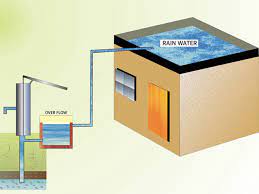Rainwater harvesting is the simple process or technology used to conserve rainwater by collecting, storing, conveying and purifying of rainwater that runs off from rooftops, parks, roads, open grounds...
Read more
How to deal with lack of Clean Water in Delhi
This Problem
needs your help
Region: Delhi
Delhi, the capital of India, is facing a severe problem of clean water. The main sources of water in Delhi are the Yamuna River and groundwater, both of which are contaminated with pollutants such as industrial waste, sewage, and chemicals. As a result, the water in Delhi is not safe for human consumption and is responsible for various waterborne diseases.
To address the problem of clean water in Delhi, various measures can be taken, including:
1. Water Treatment and Purification Water treatment and purification plants can be installed to remove contaminants and pollutants from the water. This can be achieved through processes such as reverse osmosis, ultrafiltration, and UV disinfection. Additionally, promoting the use of water filters and purifiers in households can help ensure the availability of safe and clean drinking water.
2. Reducing Pollution and Contamination To ensure the availability of clean water in Delhi, it is essential to reduce pollution and contamination of water sources. This can be achieved through the proper disposal of industrial waste and sewage, promoting sustainable agriculture practices, and regulating the use of chemicals and pesticides. Additionally, promoting awareness and education on the importance of water conservation and sustainable water management can help reduce pollution and contamination of water sources.
3. Efficient Use of Water To ensure the availability of clean water in Delhi, it is also essential to promote the efficient use of water. This can be achieved through the implementation of water conservation measures, such as rainwater harvesting, promoting the use of low-flow fixtures, and encouraging water recycling and reuse. Additionally, promoting public awareness and education on the importance of water conservation and sustainable water management can help reduce the demand for water and ensure its availability for future generations.
Overall, addressing the problem of clean water in Delhi requires a concerted effort from all individuals and institutions to promote sustainable water management practices and ensure the availability of safe and clean drinking water for all.
Solutions to this problem
Add Solution/Link Solution
Sub Problems
Projects
